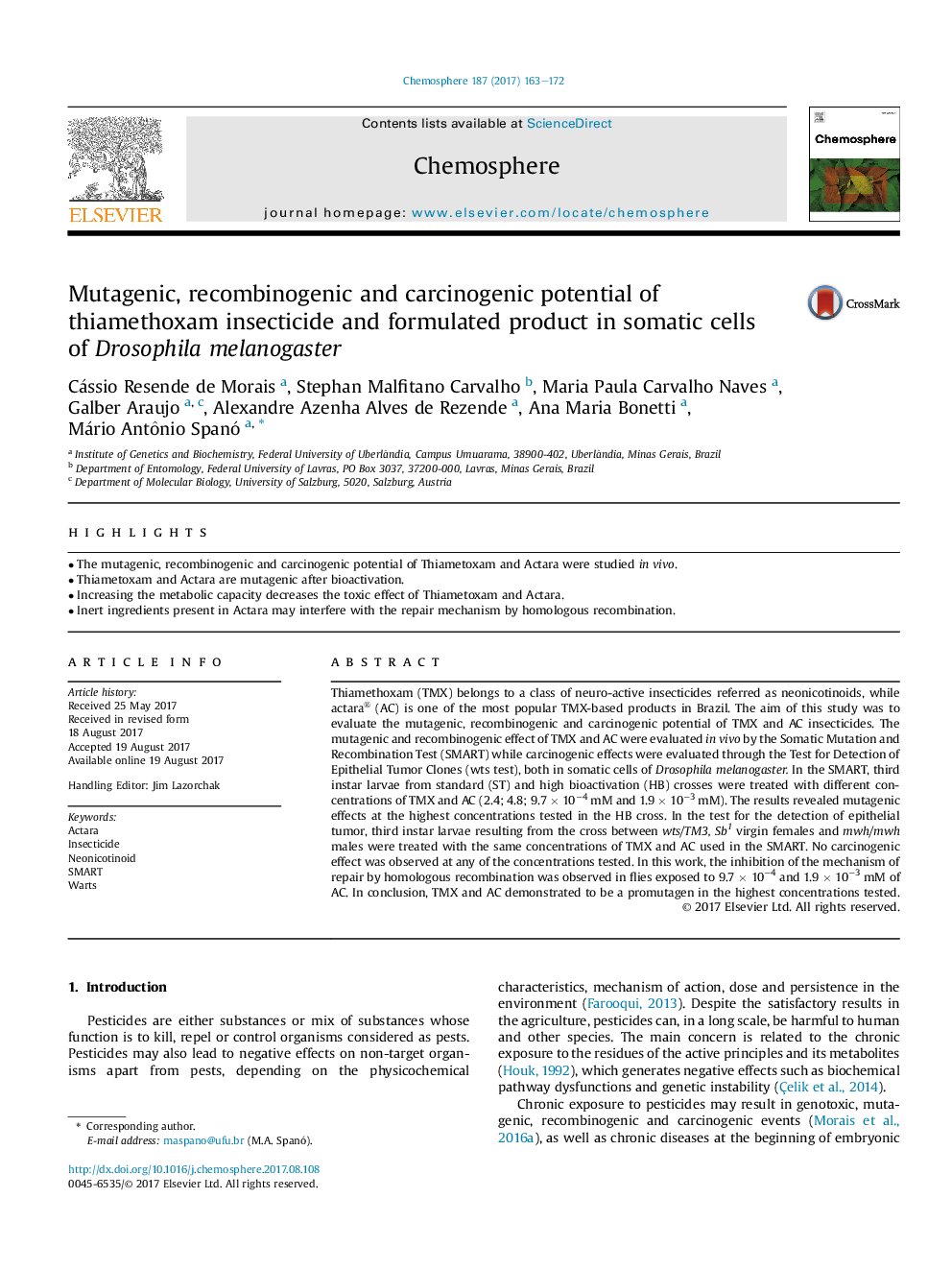| Article ID | Journal | Published Year | Pages | File Type |
|---|---|---|---|---|
| 5746436 | Chemosphere | 2017 | 10 Pages |
Abstract
Thiamethoxam (TMX) belongs to a class of neuro-active insecticides referred as neonicotinoids, while actara® (AC) is one of the most popular TMX-based products in Brazil. The aim of this study was to evaluate the mutagenic, recombinogenic and carcinogenic potential of TMX and AC insecticides. The mutagenic and recombinogenic effect of TMX and AC were evaluated in vivo by the Somatic Mutation and Recombination Test (SMART) while carcinogenic effects were evaluated through the Test for Detection of Epithelial Tumor Clones (wts test), both in somatic cells of Drosophila melanogaster. In the SMART, third instar larvae from standard (ST) and high bioactivation (HB) crosses were treated with different concentrations of TMX and AC (2.4; 4.8; 9.7 Ã 10â4 mM and 1.9 Ã 10â3 mM). The results revealed mutagenic effects at the highest concentrations tested in the HB cross. In the test for the detection of epithelial tumor, third instar larvae resulting from the cross between wts/TM3, Sb1 virgin females and mwh/mwh males were treated with the same concentrations of TMX and AC used in the SMART. No carcinogenic effect was observed at any of the concentrations tested. In this work, the inhibition of the mechanism of repair by homologous recombination was observed in flies exposed to 9.7 Ã 10â4 and 1.9 Ã 10â3 mM of AC. In conclusion, TMX and AC demonstrated to be a promutagen in the highest concentrations tested.
Keywords
Related Topics
Life Sciences
Environmental Science
Environmental Chemistry
Authors
Cássio Resende de Morais, Stephan Malfitano Carvalho, Maria Paula Carvalho Naves, Galber Araujo, Alexandre Azenha Alves de Rezende, Ana Maria Bonetti, Mário Antônio Spanó,
